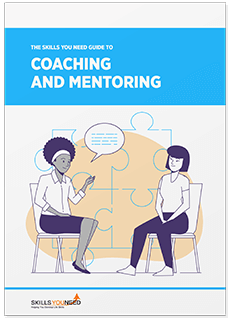Teaching, Mentoring, Coaching and Counselling
See also: What is Learning?Helping someone else to learn can be a hugely rewarding process. Doing so enables you to watch someone else grow and develop, and perhaps even come closer to fulfilling their potential. It is not an exaggeration to say that many lives have been changed by someone else providing support for learning.
There are a variety of roles, both formal and informal, which involve helping or supporting someone else’s learning. They include teaching, coaching and mentoring, as well as counselling.
Great teachers, mentors, coaches and counsellors come from a wide variety of backgrounds. But they all share a few characteristics.
First, they have respect for those whose learning they support: they treat them as individuals, and work to help them achieve their aims and objectives.
Second, they know that they themselves are also learning and developing all the time: they share a growth mindset.
Our pages on supporting others’ learning are divided into four main areas: teaching, mentoring, coaching and counselling.
Teaching
Teaching is perhaps the most well-known way to help others to learn.
A teacher generally starts from a position of ‘expert’, able to impart knowledge to their pupils. However, many teachers would recognise the importance of facilitating learning, which is more traditionally related to coaching.
Our page on Teaching Skills explains more about the skills required by teachers, including the importance of communication and Organisational Skills.
Teachers also need to be skilled motivators, using both short-term and long-term motivational techniques, and our page on Motivation for Teachers discusses some useful methods.
Mentoring
Mentors are perhaps somewhere in between coaches and teachers: they are often experts in their area, but do not have a formal teaching role.
The original Mentor, in Homer’s Odyssey, was tutor to Odysseus’ son Telemachus. The goddess Athene appeared to Telemachus in disguise as Mentor, hence the idea of a mentor as a wise guide.
Our page What is Mentoring? explains more about the idea of mentoring, and Mentoring Skills sets out the key skills required for a successful mentor.
Although this section is about the skills required to help others learn, there are perhaps particular skills required to get the most out of mentoring. Our page Learning from Mentoring explains more.
Coaching
Coaching, in the sense of these pages, describes a model of ‘coach as facilitator’.
In other words, the coach is not an expert in the subject matter, but someone who specialises in helping to unlock the potential of others. The idea is that individuals hold the key to their own success, and do not need others to tell them what to do.
Our page What is Coaching? provides an introduction to the ideas of coaching, while Coaching Skills explains the essential skills required by a coach.
Coaching is not only for formal teaching and learning situations. A coaching approach can be successfully used at home and in informal situations too, both for adults and children. Learn more in our page on Coaching at Home.
Counselling
There is, of course, another way of helping others to learn, and that is counselling.
Counselling is perhaps more intense than coaching or mentoring, and often considered therapeutic rather than supportive. But counselling nonetheless shares some characteristics with the other ways to help others learn, in particular, the position that the learner holds the answer to their own problem, and the desire to help them take responsibility for that.
- For more about this, see our page What is Counselling?
A rewarding thought
Helping others to learn can be a hugely rewarding process. Not only do you have the potential to help someone to change their life, but you also get to learn from the process yourself.
Good teachers, coaches and mentors are highly sought-after, and it is well worth taking the time to develop the skills needed to help others in this way.
Further Reading from Skills You Need
The Skills You Need Guide to Coaching and Mentoring
Coaching and mentoring require some very specific skills, particularly focused on facilitating and enabling others, and building good relationships. This eBook is designed to help you to develop those skills, and become a successful coach or mentor.
This guide is chiefly aimed at those new to coaching, and who will be coaching as part of their work. However, it also contains information and ideas that may be useful to more established coaches, especially those looking to develop their thinking further, and move towards growing maturity in their coaching.


